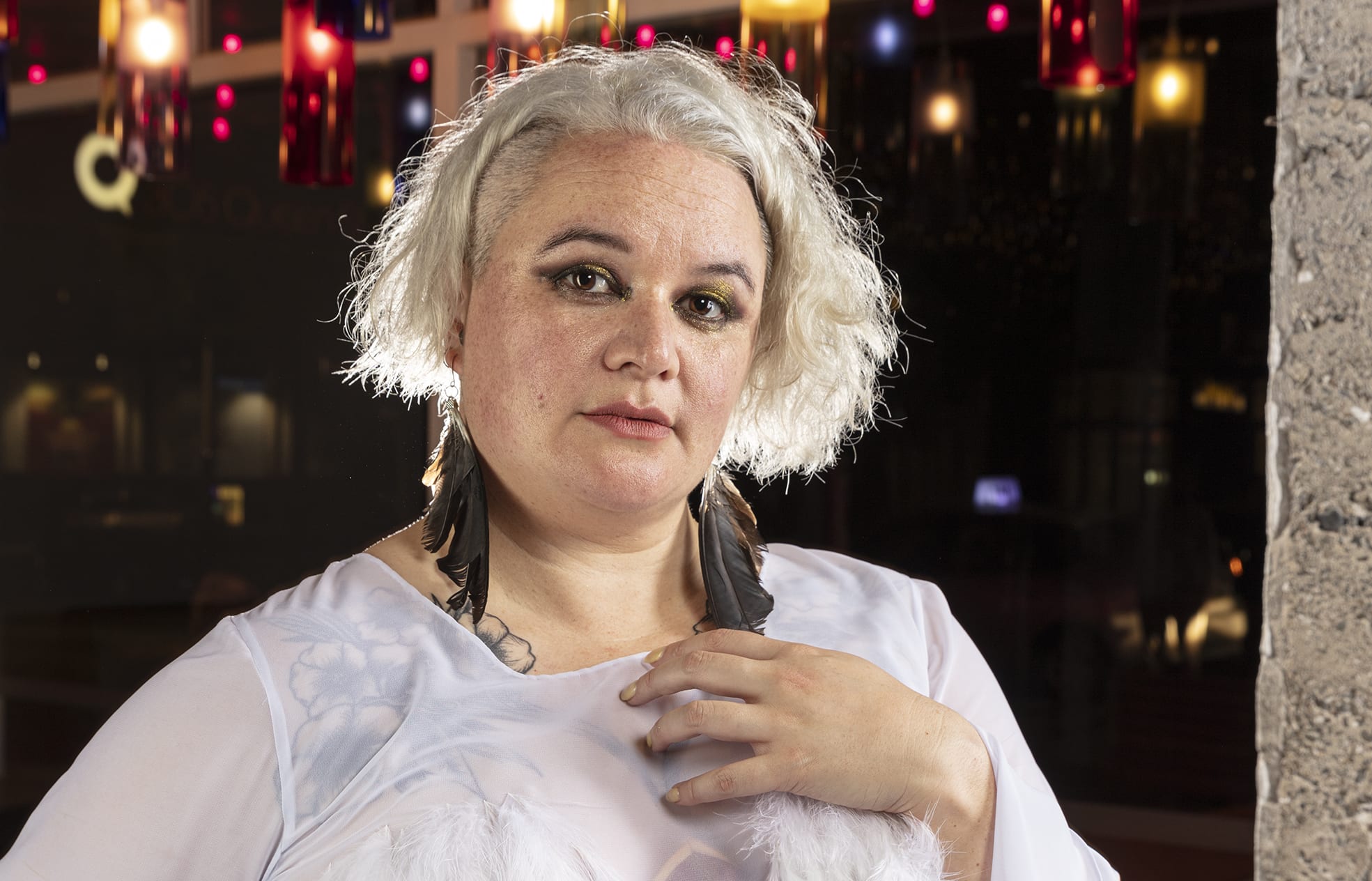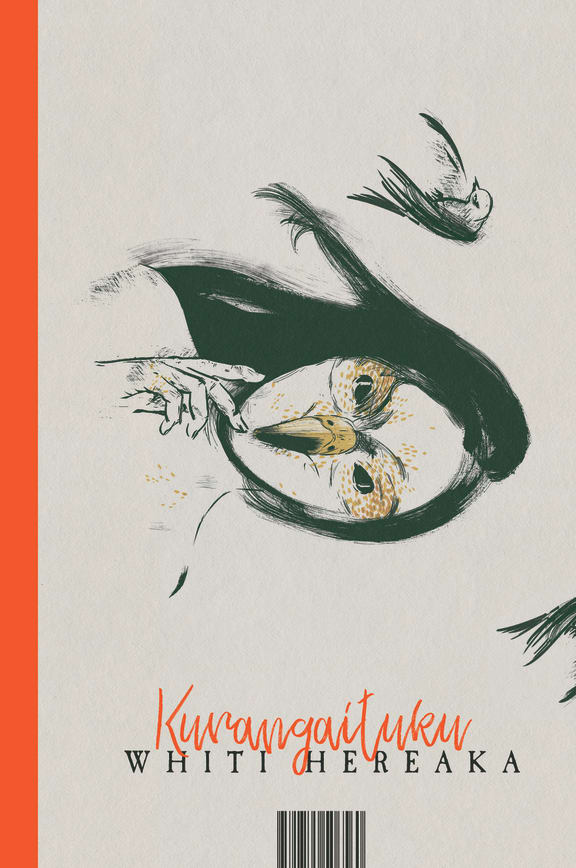Novelist and playwright Whiti Hereaka received the top prize at the Ockham New Zealand Book Awards this week for her novel Kurangaituku.
The novel turns on its head the legend of Hatupatu and the fearsome birdwoman Kurangaituku - telling the story through the lens of the so-called monster, and taking us on the journey of her extraordinary life.
Heralded by judges as a "game changer" that shakes up linear storytelling, Hereaka (Ngāti Tūwharetoa, Te Arawa, Ngāti Whakaue, Tūhourangi, Pākehā) was awarded the $60,000 Jann Medlicott Acorn Prize for Fiction.

Photo:
"I'm still up in the air about it," Hereaka told RNZ's Kim Hill. "I've got the Acorn in front of me for a little bit of tautoko this morning."
Her eye-catching home-made outfit at the Ockham ceremony, inspired by the book, also drew attention.
"I wanted to kind of bring Kurangaituku in the room with me, and that was a good physical way to do it.
While she was on the shortlist, Hereaka didn't know she'd win.
"I really wanted to celebrate the moment.
"It's been a dire few years, a little bit of frivolity at an awards ceremony I thought would be a good tonic for all of us."
The winner of the 2022 Jann Medlicott Acorn Prize for Fiction is Whiti Hereaka! #theockhams @HuiaPublishers pic.twitter.com/cvKEOWEfhe
— Ockham NZ Book Awards (@theockhams) May 11, 2022
Hereaka is also a playwright, screenwriter and teacher. Her previous novel, Legacy, won the award for Best Young Adult Fiction at the 2019 New Zealand Book Awards for Children and Young Adults.
With Kurangaituku, she was interested in experimenting. She ended up working for 10 years on the novel.
"I'm really interested in form. I'm really interested in how each form can help tell a story."

Photo: Supplied
The book is split into three parts - a light part, a dark part and the middle.
"You can approach the novel from either side of the book.
"Once you get to the middle of the novel, the pages turn around. Once you finish the middle the idea is that you turn the book over and then you start reading again.
"I wanted the reader to experience how Kurangaituku experiences both time and story."
"It's difficult in an e-book," she admits, although the novel has been adapted to that format in a more interactive way.
"At a sentence level, I was looking at the rhythms of Māori oral storytelling and trying to mimic those in English.
"I think that it's a novel that you hear more than you read, in a sense."
The story of Hatupatu has been around for a long time, with many interpretations.
"I grew up with the Reed stories, but also retellings within my own whānau.
"I think the idea of an authorised or definitive retelling of a story is quite western. In Te Ao Māori, pūrākau are told and retold. You have different versions of the story for different audiences and occasions."
The result is there isn't really "one" version of pūrākau, she said.
"They're all sort of like threads in a rope. So the more threads you have the stronger the rope is.
"This is my version of it, but it isn't the definitive version of it."
Hatupatu has taken central stage in most tellings of the myth, and the bird woman is less defined. Hereaka wanted to change that, too.
"In the published world, Hatupatu's story is the only story. And for most of the published stories, it's Hatupatu and the bird woman, so she doesn't even get a name."
"I wanted to bring her to the centre of the story. And that's not to denigrate Hatupatu's story ... it strengthens the story to have her as well.
"I said it somewhere in the novel that the tūī and the kākā sing different songs, but they both sing the truth.
"I think that's how I think of these two stories. They should be in balance. They talk to each other."
The final book is a more modern take on the legend.
"The story of Hatupatu has always been ... aimed at very small children," said Hereaka, but Kurangaituku is "definitely for adults."
"I think for so long, we have lived without having our stories told, that sometimes it feels quite threatening to have a different story told."
"I don't want to say that my version of the story is definitive, because I don't think it is. My hope is that by retelling my version of it that other people will tell their versions of it too."
Ngā mihi everyone! I’m back in my hotel room waiting on a room service cheeseburger and IPA and still can’t quite believe that this acorn is mine pic.twitter.com/R6zVmCsMnD
— Whiti “Starstar Stanza” Hereaka (@WHereaka) May 11, 2022
The $60,000 Ockham prize for the Jann Medlicott Acorn Prize is most welcome, Hereaka said.
"It gives me time. I can have time now to think about my next project."
She is working on another couple of novels, tangentially related to Kurangaituku and featuring appearances by Kurangaituku, although "it's not a series," she noted.
"I've been teaching and freelancing for a long time to kind of put food on the table, pay for the roof over my head, so I won't need to chase lots of little jobs to make my life work for a wee while. So it's a huge thing to have that."

